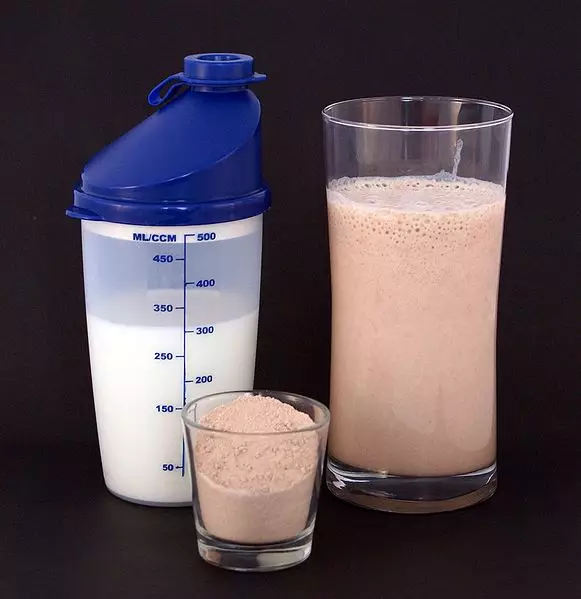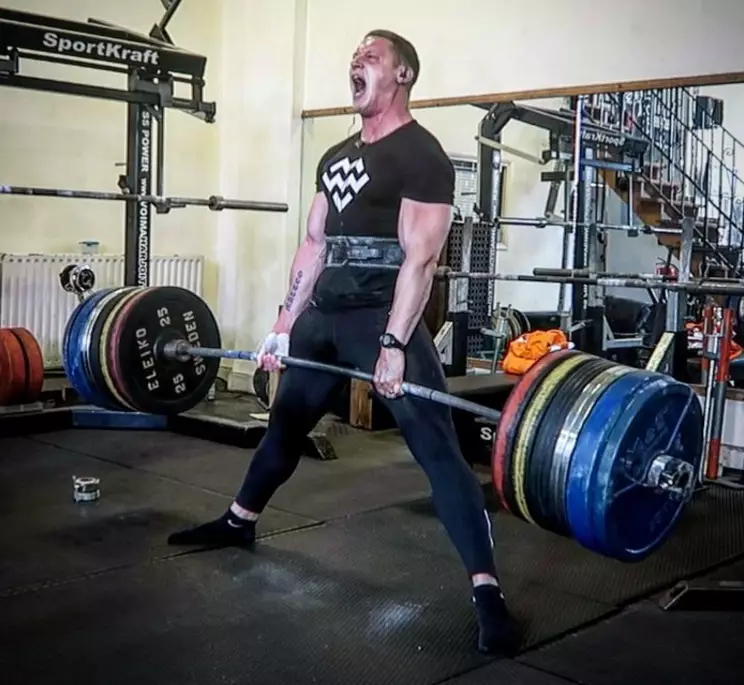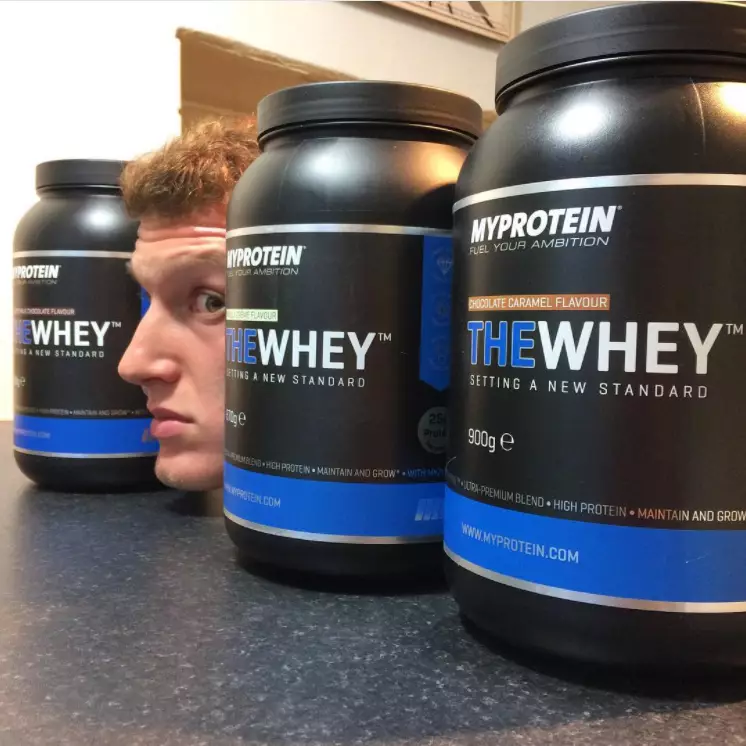
What Does 'Whey' Mean When You're Buying Protein Powder?
Protein powder in the US is a near $5 billion (£3.8bn) a year industry, and it's only getting bigger. It's not hard to see why, as plenty of gym floors across the world are dotted with small supplement shakers, with gym goers knocking back the contents quicker than you can say 'one more rep'.
If you walk into a health food or nutritional store, however, you're met with dozens of different products with very technical sounding names and it all becomes a bit too much to handle. Words pop out like 'whey', 'isolate' and 'concentrate' and you have no idea what to get.
Advert

Credit: Sandstein/Wikimedia Commons
To try to decipher the plethora of tricky - and often baffling - information, we spoke to Andy Bott, Head of Product Development at Myprotein.
Let's start with what we do know: supplements provide your body with a quick dose of essential amino acids, and saves you cooking up a mighty meal of chicken, rice and vegetables. Andy explains further: "The consumption of 1.5-2g protein per kilogram of body weight is required to optimise recovery, so for an 80kg man, it's between 120-160g protein each day. That's roughly four chicken breasts.
Advert
"This can be expensive and tricky to plan into everyday life, making a tasty and convenient protein shake sometimes the much better option."

Fitness coach Matt demonstrates his powerlifting skills. Credit: Instagram/Mattdoesfitness
That couldn't be truer, fitness coach Matt tells LADbible - as the brains (and brawn) behind YouTube channel MattDoesFitness, racking up over 97,000 subscribers and more than nine million views, he's used protein supplements for seven years.
Advert
"As a powerlifter, I lift heavy weights six days a week and weigh around 15 stone (95kg) so I need a lot of protein. Getting this through my regular diet is tough, particularly as I prefer pizza to chicken breasts," Matt says.
"By having two to three protein shakes per day though, I'm getting almost half of the protein I need before I even factor in my meals, which makes things so much easier."
But what is whey?
The reason why you keep seeing the word 'whey' pop up when you're looking for protein powder is because it's ranked the second highest for protein quality, which takes into account digestibility and quantity of essential amino acids. Eggs top the list for protein quality, if you're wondering.
Advert
Simply put, whey is a liquid material that is created as a by-product of cheese production. But here's where it gets semi-tricky; whey protein is split into four categories: concentrate, isolate, hydrolysate and 'native whey'.

"I prefer pizza to chicken breasts," says Matt. Credit: Instagram/Mattdoesfitness
Concentrate is usually the cheaper and most common type of whey protein on the market. It's quite low in fat and cholesterol and are about 80 percent protein. Isolates are purer than concentrates, mainly because most non-protein related components have been filtered out; hence the name 'isolate'. They're typically considered about 90 percent protein and are virtually lactose, fat and cholesterol free.
Advert
Hydrolysates are typically more expensive because they're easier to metabolise due to the way they're processed, while native whey is derived from skim milk and isn't a by-product of cheese production. Native whey is also reported to have a cleaner flavour and aroma compared to regular whey, and an 'improved protein profile and quality'.
How does protein powder actually work?
When you pump iron, you cause microscopic tears in your muscles, which is why you feel sore the next day. It's like if you get a cut on your finger - you'll continue to feel a small amount of pain until the wound is healed.
Myprotein's Andy Bott explains: "The amino acids from protein travel through your bloodstream, reaching the muscle tears, and essentially fuse them back together. Repeating this process regularly strengthens the muscle fibres, and makes them denser."
While you might think constantly tearing your muscles is a bad thing, this is what causes them to grow. But there's a big misconception that powders cause you to bulk up. While there are supplement products on the market for that specific reason, those are usually packed with carbohydrates to increase your calorie intake.

Matt has been using protein powders for seven years. Credit: Credit: Instagram/Mattdoesfitness
Andy adds: "Protein doesn't build weight, a calorie surplus does, so if calories are controlled you've got nothing to worry about. In fact, building muscle mass often helps drop body fat for a more toned and sculpted shape in all the right places."
So, if you're looking for faster muscle recovery and no weight gain, then look for the products which have low amounts of fat and carbs. Matt adds that the most crucial thing is balancing your diet: "You need to be eating enough food and have your diet in shape first and foremost - eat at least three good meals per day with plenty of fruit and vegetables.
"Supplements products are designed to supplement your diet, not replace it, so you should never take them instead of food."
So, while foods like chicken, beef and eggs, are great natural sources of protein, powdered supplements can offer a quick and easy intake of essential amino acids.
Featured Image Credit: Instagram